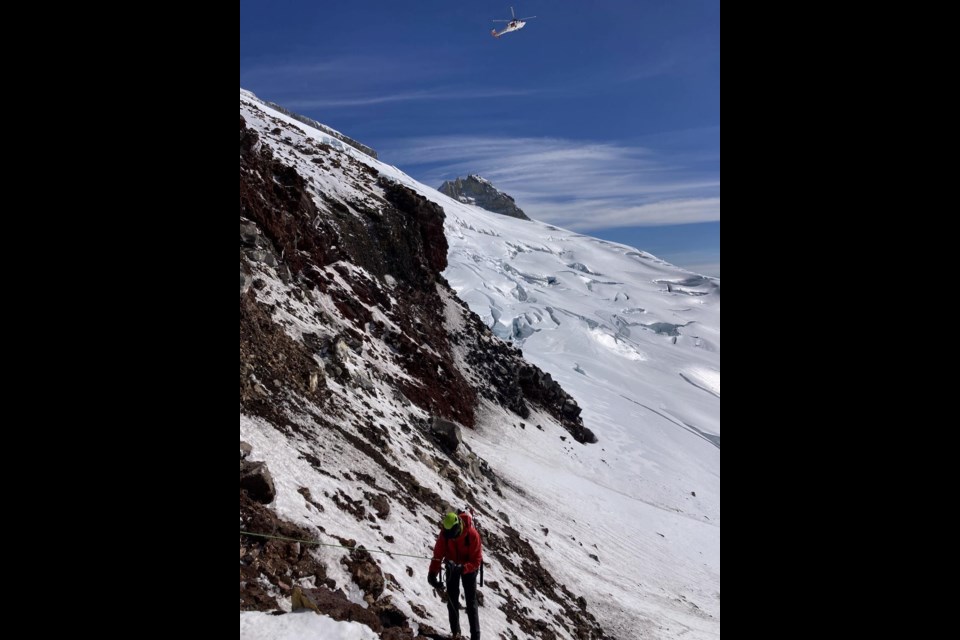A Squamish climber who died on Sept. 30 from a fall on Mount Baker in Washington State has been recovered by search and rescue crews.
Dr. Aldo Fusaro, interim medical examiner for Whatcom County, confirmed to The Squamish Chief that Sebastian Urban, 39, died as a result of a fall that caused multiple blunt force injuries.
Fusaro ruled the death accidental.
A news release states that Whatcom County deputies launched a search and rescue mission on Mount Baker's Coleman-Deming route after receiving reports of a man who had left on a solo climb two days before and failed to check in with family on the evening of Sept. 28.
The Coleman-Deming route is a route to the summit of Mount Baker. (It is so named after the late mountaineer Edmund Thomas Coleman of Victoria B.C., who made the first summit of the route in 1868.)
The release states that deputies requested search and rescue assistance from to help locate Urban.
“Thick clouds kept the helicopters from getting close to the location. A ground team of SAR volunteers from Bellingham Mountain Rescue navigated the treacherous terrain but was forced to turn back due to darkness, steep slopes and worsening weather," the release states, noting that the search began again on Sept. 30, with Naval Air Station Whidbey SAR conducting a search by air.
After refuelling and briefing with , sheriff’s deputies and Customs and Border Protection Air and Marine Operations members continued the air search that day, while members flew in a Bellingham Mountain Rescue team to the area.
Urban was finally located in a crevasse—a deep crack that forms in a glacier or ice sheet—near his inReach device.
His body was brought out by members of Bellingham Mountain Rescue, according to the release.
“We mourn with the family and friends of this intrepid climber,” said Sheriff Donnell Tanksley in the release.
“It is a heartbreaking outcome, but we are honoured to be able to bring him home," he added.
"This tragic incident underscores the critical role of emergency devices like Garmin inReach. Its real-time location data and enduring battery life—over 70% remaining upon recovery—proved invaluable in the search effort, allowing responders to locate him more quickly than would have been possible otherwise."
Tanksley also thanked search and rescue volunteers for their efforts.
“We are so grateful for the valuable work of these essential volunteers,” he said. “I hope the community will support them in any way possible.”
The sheriff’s office directed anyone interested to donate to.
Editor’s note: Unlike in B.C., agencies in the U.S. routinely release information on identities and causes of death to the media.
